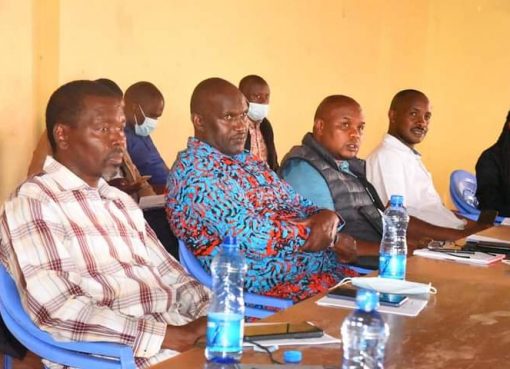Cabinet Secretary (CS) for Information, Communications, and the Digital Economy Eliud Owalo has challenged counties to incorporate technology and digitization in their programmes to improve service delivery to the public as the world evolves in the digital space.
Speaking during the County Public Service Board annual convention in Mombasa, Owalo said that devolved units and their functional mandates are anchored and aligned to the overall government policy framework in the digital sphere, hence the need to acclimatise to technology since performance will be evaluated on the basis of customer and stakeholder satisfaction index.

He added that the risk of going into obsolescence is more pronounced at the county level if the value proposition does not meet the needs of the new global digital systems.
“Technology is by far the most powerful tool to enhance service delivery. The world has shifted to advanced modules that are more efficient, including digital payment platforms, enhanced customer relations management systems, and integrated e-commerce mechanisms,” Owalo said.
The CS also noted that automation and digitization will effectively streamline performance management frameworks in the counties, which are currently loophole-ridden, consequently dragging proper functionality.
He added that technology will transform the evaluation of public servants in the devolved units on the basis of outputs and outcomes, as opposed to processes, while leveraging technology and digitization.
“Automating performance management systems will be able to discern performance levels and correspondingly incorporate monitoring, evaluation, and reporting frameworks and flag discrepancies that might lag performance,” he said.
With cutting-edge technology morphing the world into a global village, the concept of employability has significantly changed.
Organisations across the world have trimmed their physical personnel and work spaces and replaced them with sophisticated working tools that have doubled efficiency.
Owalo said this is the trajectory that not only devolved units but the country in general should take so as to be on par with global standards.
He said evaluation of organisations is no longer based on the number of staff they employ but rather on the impact on the people informed by their functional mandates.
“The net effect of embracing technology is that going forward we will have fewer people—smart people—doing the same jobs with better pay and improved efficiency,” he said.
He added that if the synergy between the national government and devolved units is seamless, the country will be able to position itself as a technological hub not only in Africa but also on the international stage.
By Chari Suche and Andrew Hinga





